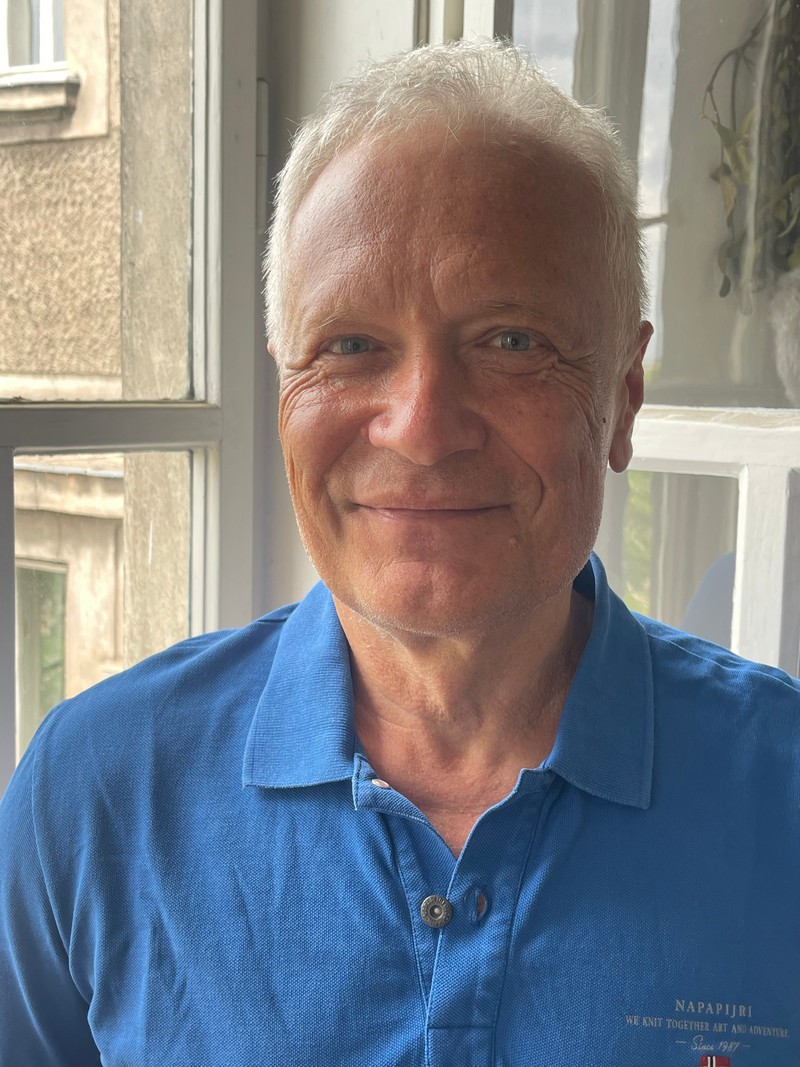20.05.2024
Martin Loebl takes over the leadership of the Learned Society
The new President of the Learned Society of the Czech Republic is Martin Loebl, a mathematician. He will succeed Libor Grubhoffer, Director of the Biological Centre of the Academy of Sciences of the Czech Republic, whose two-year mandate ends at the XXXth General Assembly of the Learned Society (20-21 May 2024).
Libor Grubhoffer remains a member of the Council of the Learned Society, as 2nd Vice- President.
Prof. RNDr. Martin Loebl, CSc., (* 1963) works at the Department of Applied Mathematics, Faculty of Mathematics and Physics, Charles University. He has been a member of the Learned Society since 2018 (detailed CV, pdf). He takes over the chairmanship for the next two years.

Photo by Clara Loeblová
"It is a great honour and commitment to be at the head of a great community of original, uplifting and inspiring people, the Learned Society. I see my presidency first and foremost as an opportunity to serve this community, to dedicate my skills and time to it," says Martin Loebl, presenting his vision for the future of the Learned Society. "I would also like to increase the benefits that Czech society gains from the Learned Society. The Learned Society is a tremendous creative force. I want to raise awareness that this force is here and can be used - for example, for reflecting on a changing world. Beyond that, I would like to continue discussions about the Czech and global logistics of science and the lives of scientists."
As 1st Vice-President, Martin Loebl has already initiated discussions on artificial intelligence and, with Jan Trlifaj, debates on open access and other aspects of scientific publishing. The recordings are available on the Learned Society's YouTube channel:
- AI: Beautiful Social Machines I, Beautiful Social Machines II (both in Czech)
- Scientific Publishing: Open Access – positives and risks (in Czech), Heroic Librarians Fighting Publishing Sharks (in English)
He divides his scientific career into three stages:
- "I wrote my PhD thesis on functions that grow very fast. I worked on classical combinatorics, solved some well-known problems and formulated some now quite well-known ones (Loebl Komlós Sós Conjecture). I would describe it as a sport period."
- "Then I discovered more abstract mathematics and theoretical physics for myself. I solved an important Kasteleyn problem from the foundations of statistical physics. This result is now known as the Arf-invariant formula. I began to work with physics and topologists since this is indirectly related to knot theory. This period (2000-2019) was probably the most successful in terms of peer recognition, I published regularly in Advances in Mathematics."
- "With Covid-19, I became interested in algorithmic game theory and its social applications (admin logistics, fairness), and I really enjoy it; we are starting to get interesting accepted results. I would call it the 'playful and creative period of a light-hearted old man' for now."